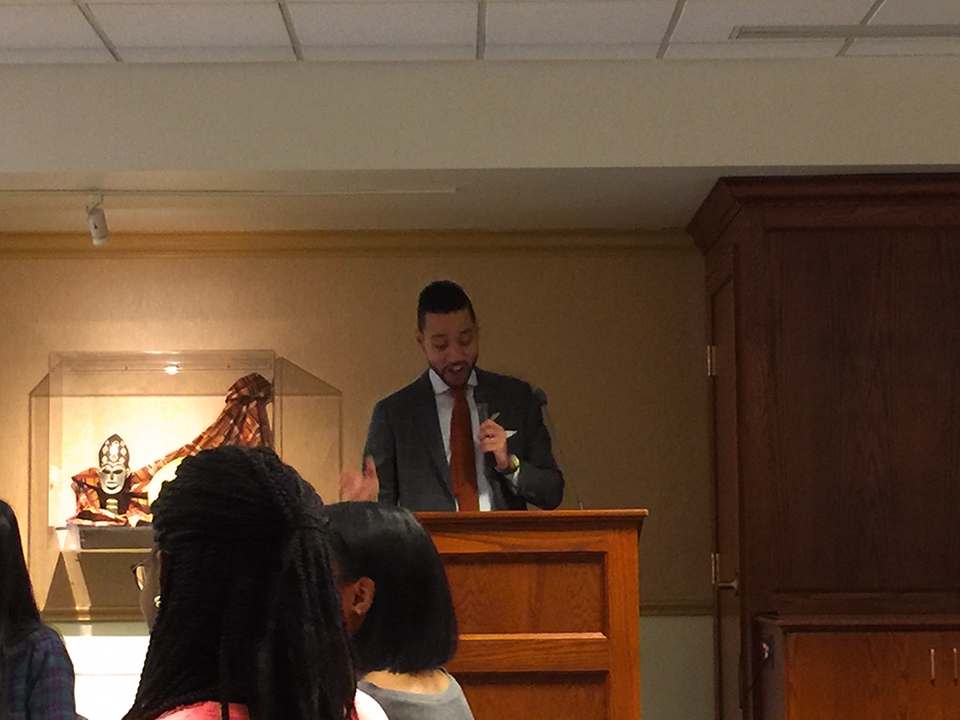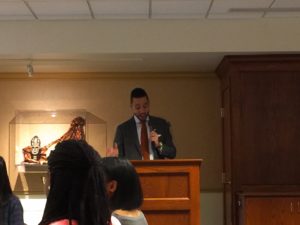

Fifty years after his death, students and faculty gathered to honor and embrace the legacy of Martin Luther King Jr.
By Anna Walnoha | Staff Writer
01/18/2018
The legacy of Martin Luther King Jr. stretches beyond dreams of unity, to calls to action and dedication. Fifty years after his assassination, Duquesne remembers this vision of motivated activism.
The Duquesne community attended the Office of Diversity and Inclusion’s (ODI) annual Martin Luther King Jr. Celebration Luncheon. Students, faculty and staff filled every table at the event and were eager to hear what keynote speaker Brian Burley, CEO of Burley + Company Enterprises, had to say.
The first to speak was Jeff Mallory, director of ODI. He thanked everyone for being able to attend and had a few words to say about King. Before introducing Burley, Mallory encouraged the congregation to “think, listen, and reflect deeply.”
After a prayer, Burley went to the podium to talk about his life and the work he has done. His work includes YNGBLKPGH (Young Black Pittsburgh), a book which highlights the African American community of the area. Burley himself is native to Pittsburgh, graduating from the now-closed Schenley High School.
While he was speaking, he kept the mood light as he recounted his life growing up. Burley sprinkled his speech with occasional moments of severity and honesty, though, mentioning about his own life: “You fall down seven times, but you get up eight.”
He went on to talk more about the young black community, appealing to their willingness to work to achieve whatever aspirations they desire.
Burley stressed the same message to the students present at the event. He had students stand and say that they are great, and that they will do great things if they try hard and put their minds to it. He also led a round of applause for the professors in the room, because, as Burley put it, they are the ones who will help them succeed.
Burley went on to say that King didn’t know that he would become or who he became to be; he just did what he thought was right and worked hard to change a lot of things for a lot of people. Burley told students that anybody has the chance to be the next MLK.
“Life is waiting for you to create it,” he said. “Everyone has the opportunity, if they are not afraid to work.”
At the end of the luncheon, I had the opportunity to speak with Burley about his career and his thoughts of civil rights.
“It is easier to connect with people with the advances of technology today,” he said. “You are able to connect to everyone around the country. It centralizes a lot of stuff, but still separates.”
Burley commented on the work Americans still have to do to achieve equality.
“America is always a work in progress, and we have work to do,” he said. “We all have to do more.”
He then invoked a quote by MLK, “Injustice anywhere is a threat to justice everywhere.”
On the topic of change and promoting inclusion, Duquesne was brought up. Burley said of the university, “We should make this university what the founders wanted. And continue leading, leading the way of diversity. You have to allow people to learn, not in the sense educationally, but of people learning people.”



